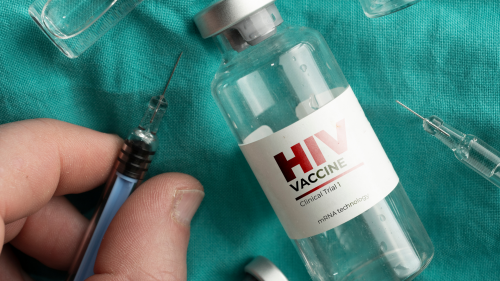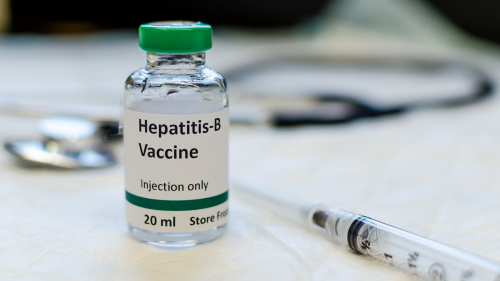At a meeting held on Nov. 2–3, 2021, the Centers for Disease Control and Prevention’s (CDC) Advisory Committee on Immunization Practices reviewed its recommendations on vaccines for infectious diseases. During this meeting, the committee revised hepatitis B vaccine recommendation guidelines to protect more adults against the effects of the hepatitis B virus infection.
Hepatitis B is a vaccine-preventable, communicable disease of the liver caused by HBV. HBV is transmitted through percutaneous (i.e., puncture through the skin) or mucosal (i.e., direct contact with mucous membranes) exposure to infectious blood or body fluids.
As part of their plan to address HBV, the CDC’s Division of Viral Hepatitis announced a goal to reduce HBV infections by 90% and HBV-related deaths by 65% in 2030. To help meet these goals, the CDC has outlined new hepatitis B vaccination recommendations for 2022. Vaccines can help prevent the disease and have reduced the number of reported hepatitis B cases by 90% since being introduced in 1982.
A hepatitis B vaccine is now recommended for adults ages 19 to 59 years without risk factor screening and disclosure. This helps increase vaccination coverage and decrease cases.
The vaccine is also recommended for adults ages 60 years or older who have risk factors for hepatitis B. Risk factors can include having sex without a condom or barrier method, sharing needles, and having a job that exposes you to human blood, among others.
It’s also recommended that adults 60 years or older get a vaccine, even without known risk factors. New clinical guidance advises providers to offer vaccinations to this group. Previously, clinical guidance instructed providers to administer the hepatitis B vaccine only when it was requested by a patient.
What is the recommended vaccine schedule for hepatitis B?
Picture 1. Vaccine for Hepatitis B
PreHevbrio is the latest Food and Drug Administration (FDA)-approved vaccine for hepatitis B in the United States. It was released in November 2021. PreHevbrio is approved for use in adults 18 years of age and older. The recommended vaccine schedule for PreHevbrio includes three doses over the course of 6 months. The first dose is at 0 months, the second dose is at 1 month, and the third and final dose is at 6 months.
A third recombinant vaccine with a novel adjuvant, Heplisav-B (Dynavax) is also approved for adults 18 years of age and older. It requires 2-doses administered 1 month apart. HBV infection cannot result from use of the recombinant vaccine since no potentially infectious viral DNA or complete viral particles are produced in the recombinant system.
Engerix-B (GSK) and Recombivax HB (Merck) are approved starting at birth, and for pediatric and adult populations. Administration varies between 2 to 3 doses depending on age but generally follows a schedule of 6 months.
Depending on the number of doses, these vaccines are typically administered at 0, 1–2, and 4–6 months following the start of the vaccination process.
Three doses are usually required to complete a series of hepatitis B vaccinations. However, those receiving Heplisav-B only need two doses to complete a series. Some people may also only need two doses depending on age and vaccine type.
The hepatitis B vaccine has significantly reduced the number of reported cases over the past 40 years that it has been available. It’s been proven to prevent HBV infection, which can have serious complications on the liver if left untreated. New hepatitis B vaccine guidelines from the CDC help make vaccines more effective in preventing the disease and reducing the number of infections and deaths.
While vaccination against hepatitis B is important in preventing the disease, it may not be safe for some people to take. This includes anyone who has had a serious allergic reaction to a dose of a hepatitis B vaccine in the past, a component of a hepatitis B vaccine, or yeast. Talk with your doctor about whether a hepatitis B vaccine is right for you.
References:
- Centers for Disease Control and Prevention. (2021). Hepatitis B Vaccine.
- Centers for Disease Control and Prevention. (2022). Universal Hepatitis B Vaccination in Adults Aged 19–59 Years
- (2022). CDC Committee Outlines New Recommendations for Hepatitis B Vaccine in 2022








